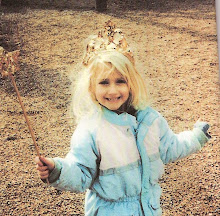In the TV game Jeopardy, it’s the questions that are the right answers, not much different than the art of Ethics. In Plaisance-Chapter 2, “ethics is about getting good at asking the right questions”. Consequently, ethics is more about the questions than the answers.
In my future profession, public relations, I suspect that ethical dilemmas will be a daily event. For instance, let say I am the vice president of public relations for The American Cancer Society and my advancement people have come to me with a challenge. Mr. Morris had donated 100 million dollars of his personal fortune to fighting cancer. But here is the dilemma; Mr. Morris is of the Phillip Morris family fortune, 650 million dollars to be exact, which was accumulated by the sale of tobacco products. He wants the gift to be anonymous. The ethical questions are based on how to announce this gift knowing that the money is from the makers of cigarettes? The gift is anonymous but someone will find out sooner or later so do we tell the truth now or hold the info and hope for the best? Of course there is the whole question about taking the gift in the first place, but that ethical decision was made on a higher level, I have to announce the gift.
Just the fact it’s an anonymous gift is an ethical challenge. There was a situation at Princeton University in 2002 of a large anonymous gift that was supposedly misused leading to a loss of 100 million to the University and the exposure of the names of the donors. After an internet search on the topic, I found that many non-profits will no longer accept anonymous gifts because of the issues that can surface. There is an ethical question, someone wants to give a million dollars to Save the Children and they say no? Don’t the children have a voice here, they are hungry!
Both Bentham and Mill’s utilitarianism approach to ethics, would examine the consequences. In this case if accepting the gift from a former tobacco family got out how would the public feel about that? How would people living with cancer take the news? I would have to think about the big picture, not how I felt about the gift. It would potentially save many lives. I relate to Bok’s model, it seem practical to me. First, how do I feel about it? Second, bring the experts in, others who have had to deal with similar scenarios, the Board of Directors, Doctors, and patients maybe in this case. And third, have a conversation with Mr. Morris, the President of the American Cancer Society and maybe our corporate lawyer. Questions should be explored. Does this have to be an anonymous gift? What happened if the name of the donor gets out? What are the pro and cons? I have to assume when the gift was accepted this was all done by the big guys upstairs in the suits. My issue is the announcement but one should never assume when publically representing something – I need the facts.
I would also use the Bok approach to ethical quandaries relating just to the announcement. I guess I feel that I am covered from my personal feelings about the issue because it is an anonymous gift and I did not make the decision to accept it. I would ask my team what they think and I would even approach my national association and ask on the list serve, hypothetically of course, how they would approach rolling out the gift under similar circumstances. And lastly I would talk with the decision makers and just put the pros and cons out there if this was to leak out. And have a set plan for either scenario.
I would bet it all on Double Jeopardy anytime; one straight answer is a luxury.
In class I would like to see discussion around case studies of relevant situations in the Communications field. Talking these scenarios out using the tools discussed in Chapter One of our textbook would be very helpful. I learn better from real life examples.
Bespoke salvia
10 years ago

No comments:
Post a Comment